Our customer data capture solutions combine a number of our core competencies to deliver end-to-end document processing and data capture solutions. It is ideally suited for outsourcing an end-to-end business process, such as:
- Invoice processing
- Digital mailroom
- Survey processing
- Forms processing, e.g. credit application forms
- Claims handling
By combining a range of services, we can help provide complete control over your data with electronic capture and management solutions.
Get in Touch with Experienced Data Capture Leaders
Contact Dajon today for a free no-obligation consultation on your data capture project.
Secure data capture facilities for processing documents
Cost-effective and secure
Dajon has several secure data capture and processing facilities in the UK. This allows documentation to be delivered cost-effectively using local facilities to process both sensitive and personal documentation. These facilities all conform to Dajon’s high operational standards.
Our electronic data capture solutions and systems are built with security and confidentiality in mind so that we can manage even the most sensitive of personal and confidential data. Dajon is uniquely positioned to deliver our customers a complete data capture solution. From collection to processing and data conversion, we combine our expertise, world-class facilities and technology including high-quality scanners and data capture software.
Accredited and Certified
We are ISO27001 certified. ISO27001 is the international standard describing best practice for an Information Security Management System, often shortened to ‘ISMS’.
An Information Security Management System (ISMS) is “part of the overall management system, based on a business risk approach, to establish, implement, monitor, review, maintain and improve information security. The management system includes organisational structure, policies, planning activities, responsibilities, practices, processes and resources” (ISO/IEC 27000:2012).
An ISMS is a systematic approach to managing confidential or sensitive corporate information so that it remains secure (i.e. available, confidential and with its integrity intact). It encompasses people, processes and IT systems, in recognition that information security is not just about anti-virus software, implementing the latest firewall or locking down your laptops or web servers. The overall approach to information security should be strategic as well as operational, and different security initiatives should be prioritised, integrated and cross-referenced to ensure overall effectiveness.

Recent Project
Queen Mary University of London
For 15 years, The GI Physiology Unit had been using long, paper-based questionnaires to capture clinical information from patients on their health-related problems.
Dajon came up with a solution on how to easily capture data from the new questionnaires and convert these into meaningful information.
A complete electronic data capture solution
As part of our data capture solutions, we can provide an online document management tool, accessible over the Internet via a browser. This simplifies the deployment and keeps implementation costs down.
Once processed the original documents can be stored in one of our long-term storage facilities if there is either a practical or regulatory need to retain the original documents.
The system can be easily configured using in-built workflows to replicate your business processes. Security is built-in, each user can be assigned permissions to control who has access to the data along with an audit trail of who has accessed and changed the documentation.
All our data capture facilities are equipped with the latest scanning technology to support high-speed bulk scanning or processing of documents. We use several data capture methods or techniques ranging from automatic data capture to single-page manual data capture or data entry.
Document Scanning and Optical Character Recognition (OCR)
During the scanning or processing of a document, we can use high-speed OCR to provide automatic data capture, this keeps costs low. However, significant preparation and thought needs to be given to the form design to maximise quality, and keep errors low to sustain a low cost in terms of processing.
Data Entry and Verification
Our data capture services are designed to enable us to support data entry services in English, and other languages, including Japanese, Chinese, and French.
Data Output
Dajon’s data capture team includes experienced developers which means we can provide the data in most common formats either online via a download or CD.
Talk to the Data Capture Specialists
Ready to start your digital transformation journey? Contact Dajon today for a free no-obligation consultation!
Trusted to deliver by


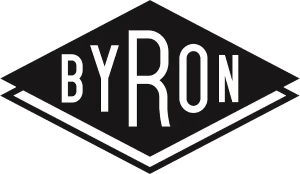






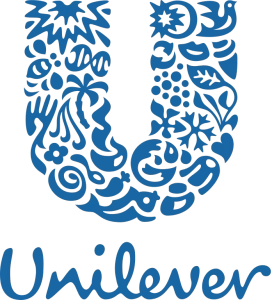
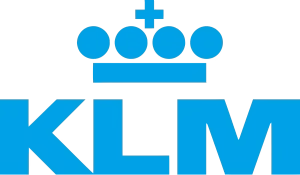

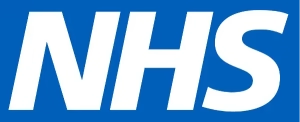
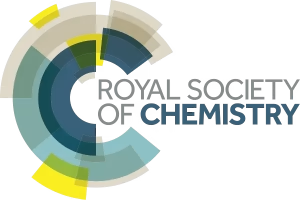




What our clients have to say
We have used Dajon Data Management for the scanning of our financial records. They have carried out their work in a very efficient and cost effective manner….we highly recommend them.
Southwark Council
I have come to greatly appreciate Dajon’s helpful and always friendly customer service, attention to detail and efficient way of handling our archiving and scanning jobs. I am happy to recommend Dajon Data Management.
Caxton Europe Asset Management
Dajon provided us with a measured and cost effective solution to a problem involving historic record photographs… the digitisation was executed quickly and efficiently and we are already reaping the benefits.
National Army Museum
Electronic Data Capture Solutions — Dajon Data Management

At Dajon, we provide complete document and data capture solutions from document delivery, to processing and automated data capture. Find out more here.
Service Type: Data Capture
Frequently Asked Questions
What is electronic capture and how does it work?
It’s the process of collecting and managing data electronically, as opposed to traditional paper-based methods. Specialised software captures data directly in a digital format, which streamlines collection and provides greater accuracy. Data can be collected from various sources: Online forms, sensors, barcodes, mobile devices, and so on. The data is validated in real-time, reducing the likelihood of errors and ensuring high data quality. Post-capture, the data stored in a centralised database, where it can be easily accessed, analysed, and integrated with other systems.
Who uses EDC?
EDC enjoy wide use across multiple industries.
– In clinical research, pharmaceutical companies and healthcare organisations employ it to collect and manage clinical trial data efficiently.
– In the financial sector, banks and insurance companies use it for processing applications, managing transactions, and ensuring compliance.
– Manufacturing and logistics companies leverage it to track inventory, manage supply chains, and monitor production processes.
– Government agencies and educational institutions also utilise it for various administrative and operational purposes.
Basically, any organisation that requires accurate, real-time data collection and management can benefit from EDC systems.
What is a data capture system?
A technological solution designed to collect, process, and store data from one or more sources. Typically includes hardware components – scanners, sensors, mobile devices, etc. – and software for data collection, validation, and storage. Their primary function is to automate the data entry process, minimising manual input and thus reducing errors. Advanced data capture systems can also integrate with other business applications, so data can flow seamlessly across different departments.
What is a data capture strategy?
A comprehensive plan that outlines how an organisation will collect, manage, and utilise data to achieve its business objectives. It involves:
– Selecting the appropriate capture methods
– Defining quality standards
– Implementing the necessary tools.
Key components of a data capture strategy include:
– Identifying the types of data to be captured
– Determining the sources of data
– Establishing data governance policies
– Ensuring compliance with relevant regulations.
A well-defined data capture strategy helps organisations optimise their data collection processes, enhance data quality, and gain valuable insights from their data.
What is capture management process?
This refers to the systematic approach to managing the data capture lifecycle: From data collection to storage and utilisation. There are several key steps:
1. Data Collection: Gathering data from various sources (using appropriate tools and methods).
2. Data Validation: Ensuring the accuracy and completeness of the collected data – real-time validation checks.
3. Data Storage: Storing the validated data in a secure and organised manner – typically in a centralised database.
4. Data Integration: Integrating the captured data with other business systems and applications to ensure seamless data flow.
5. Data Analysis: Analysing the data to derive meaningful insights and support decision-making processes.
6. Data Governance: Implementing policies and procedures to ensure data quality, security, and compliance with regulations.
Effective capture management requires collaboration across various departments and automating the process. A robust capture management process, organisations improves data accuracy, enhances operational efficiency, and make more informed business decisions.
